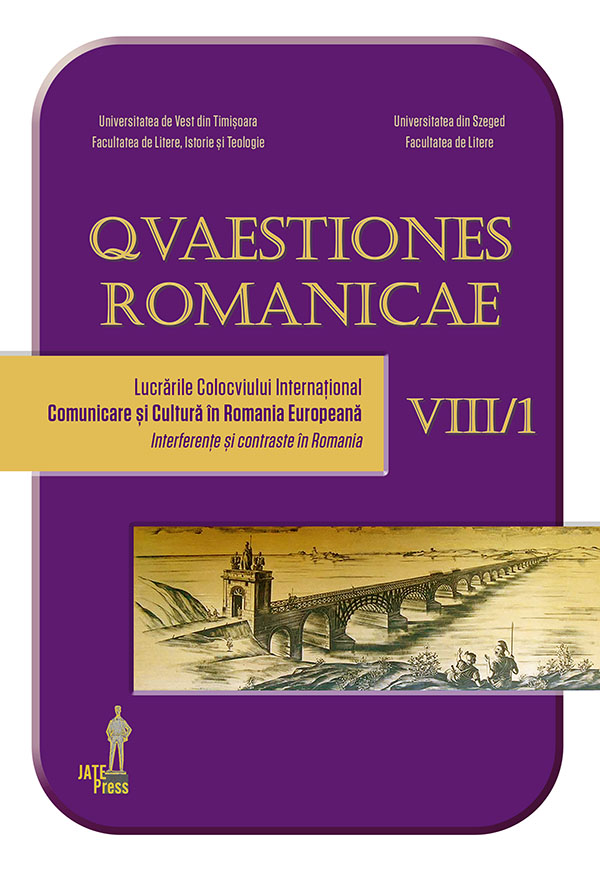Paradoxul semantic în discursul cioranian
Abstract: (The Semantic Paradox in the Cioranian Speech) We try to show, in this paper, that when it comes to a writer like Emil Cioran, the insertion, in a philosophic, essayistic or aphoristic discourse, of terms with different stylistic functionality, becomes clear proof of the mastery of the potentials and nuances of the Romanian language. By association with the determinant endearing, the terms fury and hysteria, for example, leave the area of the usual language, installing themselves in a semantic of the paradox, cultivated by the philosopher on wide areas. Cioran often associates the word "hysteria" with determinants from other semantic spheres, makes it more domestic, more gentle, in other words, fades the initial terminological mark, removes it, at first reading, from the scientific, medical style. Endearing, laic, messianic, metaphysical are just a few of these paradoxical determinants, catalysts of intense experiences, but also a semantic source of perplexity, of absurdity, of sarcasm. There is a predilection in Cioran's youth discourse for the use of terms that come from different semantic spheres, which are used in association or in syntagmatic partnership. The proximity of them, within the collocations they structure, leads to obtaining unusual, oxymoronic predications. Thus, it is produced a relativization of the semantic homogeneity of the two terms and, in a paradoxical way, a fusion of them, in the discursive actuality, by the recovery of the etymological meaning. The association with antonymous or contrastive terms, forces a semantic reorientation of the entire cioranian speech.
Keywords: Cioran, paradox, semantics, oxymoron, etymon.
Rezumat: Încercăm să arătăm, în această lucrare, cum, la un autor de talia lui Emil Cioran, inserarea, în discursul filosofic, eseistic sau aforistic, a unor termeni cu funcționalitate stilistică diferită, devine dovada clară a stăpânirii potențelor și nuanțelor limbii române. Prin asociere cu determinantul duioasă, termenii furie și isterie, spre exemplu, părăsesc zona limbajului uzual, instalându-se într-o semantică a paradoxului, cultivată de filosof pe arii largi. Cioran însoțește, adesea, cuvântul isterie cu determinanți din alte sfere semantice, îl face mai domestic, mai blând, altfel spus, îi estompează amprentarea terminologică inițială, îl îndepărtează, la o primă citire, de stilul științific, medical. Duioasă, laică, mesianică, metafizică sunt doar câțiva dintre acești determinanți paradoxali, catalizatori ai unor trăiri intense, dar și sursă semantică de perplexitate, de absurditate, de sarcasm. Există, în discursul cioranian de tinerețe, o predilecție pentru utilizarea, în asociere sau în parteneriat sintagmatic, a unor termeni care vin din sfere semantice diferite. Apropierea dintre aceștia, în cadrul sintagmelor pe care le structurează, conduce la obținerea unor predicații inedite, oximoronice. Se produce, astfel, o relativizare a omogenității semantice a celor doi termeni și, în chip paradoxal, o fuziune a lor, în actualitatea discursivă, prin recuperarea, în subsidiar, a sensului etimologic. Asocierea cu termeni antonimici sau contrastivi, obligă la o repliere semantică a întregului discurs cioranian.
Cuvinte-cheie: Cioran, paradox, semantică, oximoron, etimon.
